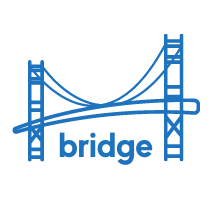We’ve all heard the term “self-help.” You’ve probably even been offered a self-help program promising perfect confidence or consistently good mood. Tempting, right? And there seems to be a self-help therapy for everything! To feel less depressed, lose weight, effectively communicate, or improve some other area of life.
But is self-help really something your clients should consider in addition to therapy? Or, if your client can’t afford therapy, is self-help a viable option?
Traditional self-help is all about making change by working through a paper workbook or online intervention without the help of a therapist. This is also known as “unguided self-help.” Even though the programs provide information and exercises to practice skills, clients put in the work on their own. On the other hand, “guided self-help,” involves support from a coach or therapist. More on this later.
But do self help programs actually help?
Self-help therapy programs based on CBT processes and skills appear to be helpful for depression, anxiety, trauma, and insomnia appear to be helpful, while programs for alcohol, exercise, and chronic pain appear to be less effective. However, not everyone benefits from self-help programs. Unguided self-help programs in particular tend to be less effective than guided self-help or traditional therapy. Drop-out rates also tend to be quite high.
Pros: Self-help programs remove barriers to care while helping people. They are much less financially burdensome and they help when there are very few therapists to provide care. Self-help also provides an option for clients who do not want to attend therapy (e.g., for feeling embarrassed for not wanting treatment via interpersonal interaction). And people can do it whenever or wherever they like.
Limits: Research supporting the use of self-help utilizes programs based on behavioral and cognitive therapies. The effectiveness of self-help utilizing other theoretical orientations is less understood. It is also unclear exactly who will benefit from self-help. It is unclear whether its effectiveness depends on the degree of symptoms or distress when entering therapy, or if other factors matter (e.g., age, education level, etc).
So what are some good therapist resources for self-help? Moodgym is a good example of an effective online self-help program for depression and anxiety. Our Therapist Books and Self-Help Books page also has good guided and unguided self-help resources.
Self-help can be a powerful tool for change and may be a reasonable alternative when traditional psychotherapy or any support from a therapist is out of reach. It’s also a good option for clients to know they can try a self-help program or seek a live therapist if they need more support.









